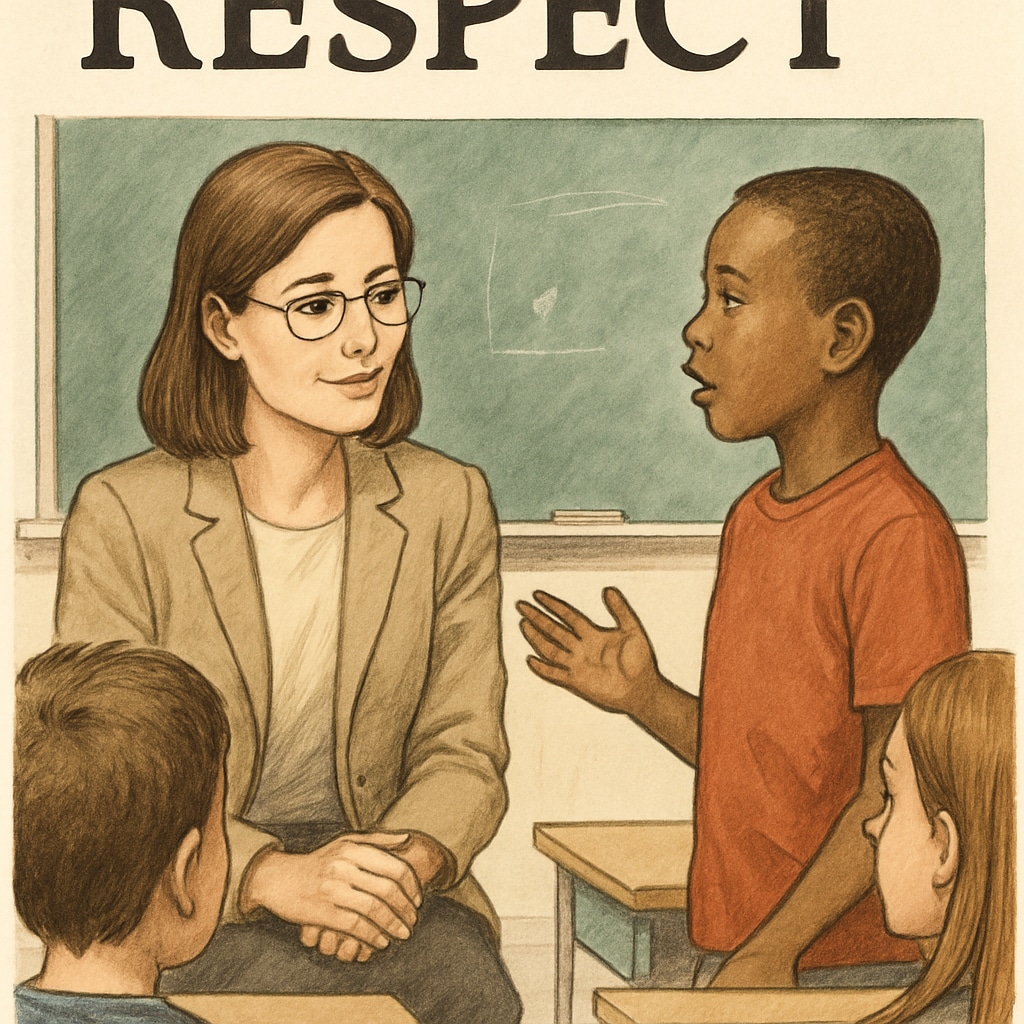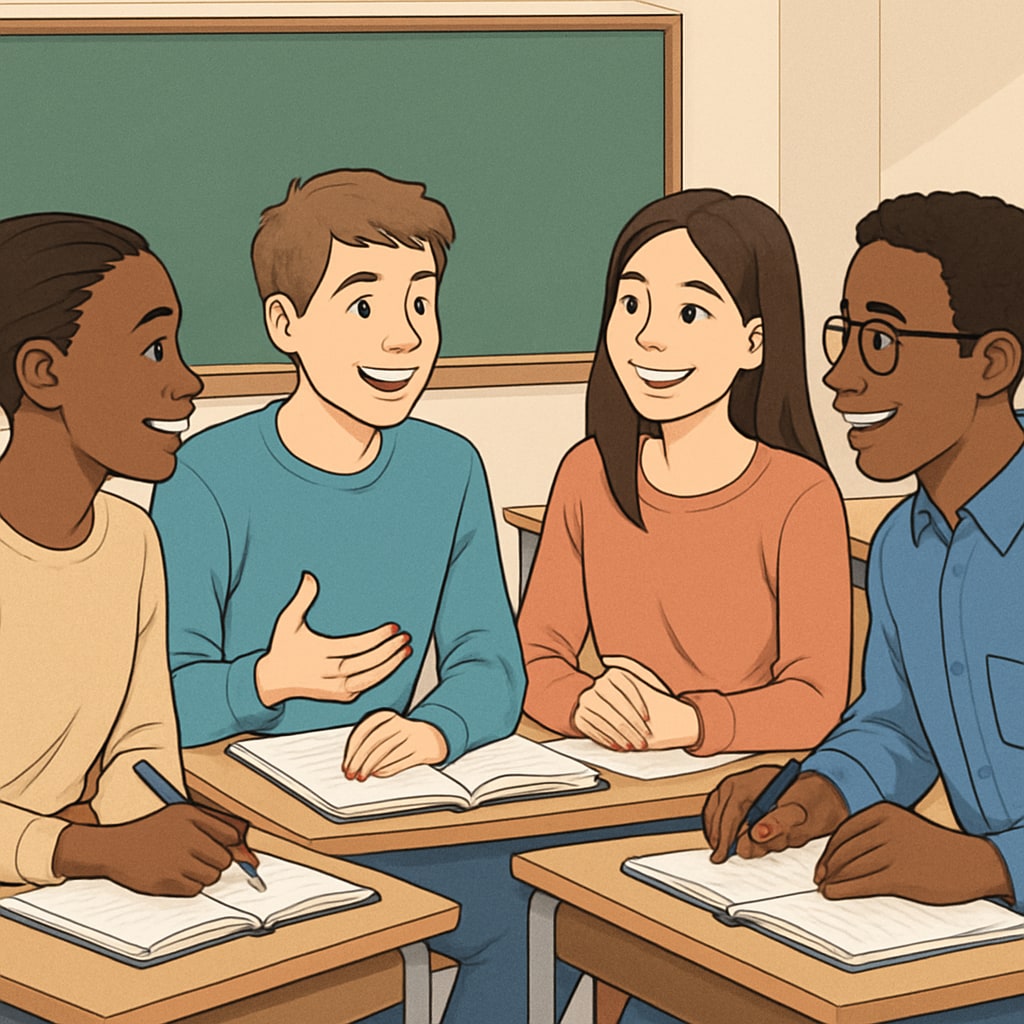In the dynamic world of education, the simple act of respect can have profound implications. “Thank you for truly hearing me.” These were the heartfelt words from a student to their teacher, a moment that encapsulates the essence of meaningful engagement in the classroom. Respect in education goes beyond discipline and instruction—it involves listening, valuing student perspectives, and fostering an environment where every voice matters. When students feel respected, their confidence grows, and their motivation to learn flourishes.
But what does respect in education look like in practice? Let’s explore the story behind this student’s gratitude and the broader significance of teachers embracing a culture of listening and empathy.
The Impact of Listening: A Teacher’s Moment of Truth
In a bustling high school classroom, Ms. Carter, a literature teacher, was working with her students on a challenging group project. One afternoon, a quiet student, Emma, approached her hesitantly. She shared her frustrations about not being heard in her group and feeling overshadowed. Instead of brushing it off as typical teenage dynamics, Ms. Carter paused, invited Emma to sit down, and listened attentively to her concerns.
This seemingly small gesture had a monumental impact. Emma later shared that this was the first time she felt her voice truly mattered. “Thank you for truly hearing me,” she said, her eyes bright with newfound confidence. Through this interaction, Ms. Carter demonstrated the power of respect and empathy, underscoring how vital it is for educators to create safe spaces where students can express themselves.

Respect as the Foundation of Effective Education
Why does respect fuel such transformative outcomes? Respect in education is not just about maintaining authority; it is about mutual understanding. When teachers take the time to listen, they acknowledge students’ individuality and intellect. This act of recognition fosters trust, which becomes the foundation of a positive learning environment.
Research highlights the importance of respect in classrooms. According to a study published by the Encyclopaedia Britannica, students who feel respected by their teachers exhibit higher levels of engagement and academic achievement. Respect empowers students to take ownership of their learning, knowing their thoughts and opinions are valued.
For educators, practicing respect can involve:
- Active listening during student-teacher interactions.
- Encouraging open dialogue and diverse opinions.
- Acknowledging and addressing students’ individual challenges.
- Providing constructive feedback that builds confidence.

Building Confidence and Motivation Through Respect
When students feel respected, they develop a stronger sense of self-worth. This confidence extends beyond academics; it shapes their interpersonal skills, decision-making, and long-term aspirations. Emma’s story is a testament to this. After her conversation with Ms. Carter, she began participating more actively in class and even volunteered to lead her group’s next project.
Moreover, respect nurtures motivation. Students are more likely to engage in challenging tasks and persevere through difficulties when they know their efforts are valued. As noted by the Wikipedia page on education, motivation is a key predictor of academic success. Respect doesn’t just create better students—it creates lifelong learners.
Small Actions, Big Impact
Educators often underestimate the ripple effects of their everyday actions. A simple “How are you feeling about this?” or “Tell me more about your idea” can make students feel seen and heard. These moments of respect are the building blocks of a supportive educational experience.
For students like Emma, these interactions can be life-changing. They remind us that education is not just about imparting knowledge but also about fostering human connection. Teachers who prioritize respect and empathy create classrooms where students feel safe to explore, question, and grow.
In conclusion, Emma’s gratitude to Ms. Carter serves as a powerful reminder of the role respect plays in education. By listening and valuing students’ perspectives, teachers can inspire confidence, ignite motivation, and leave a lasting impact on their students’ lives. As educators, let’s strive to create more moments where students can say, “Thank you for truly hearing me.”
Readability guidance: This article emphasizes short paragraphs, clear transitions, and actionable insights for educators. The use of real-life examples and research-backed evidence ensures accessibility for a broad audience.


